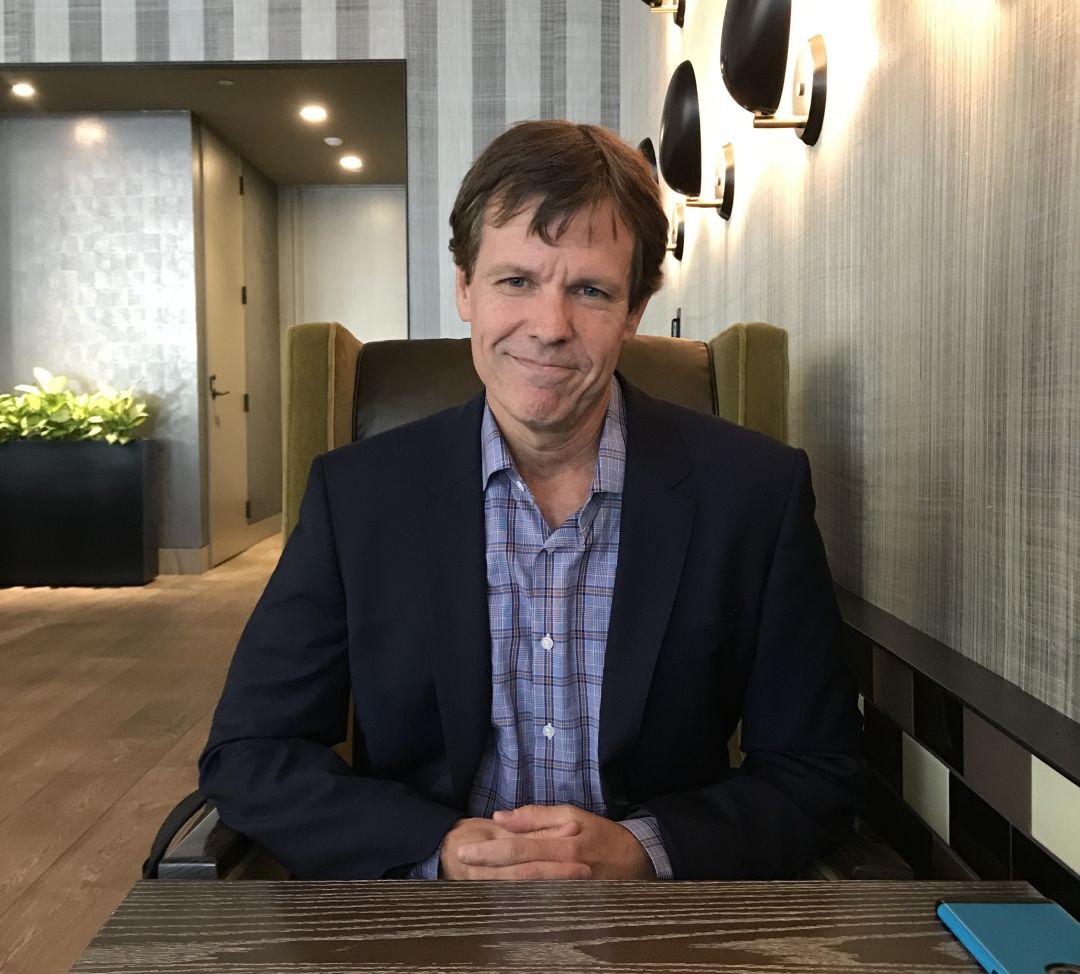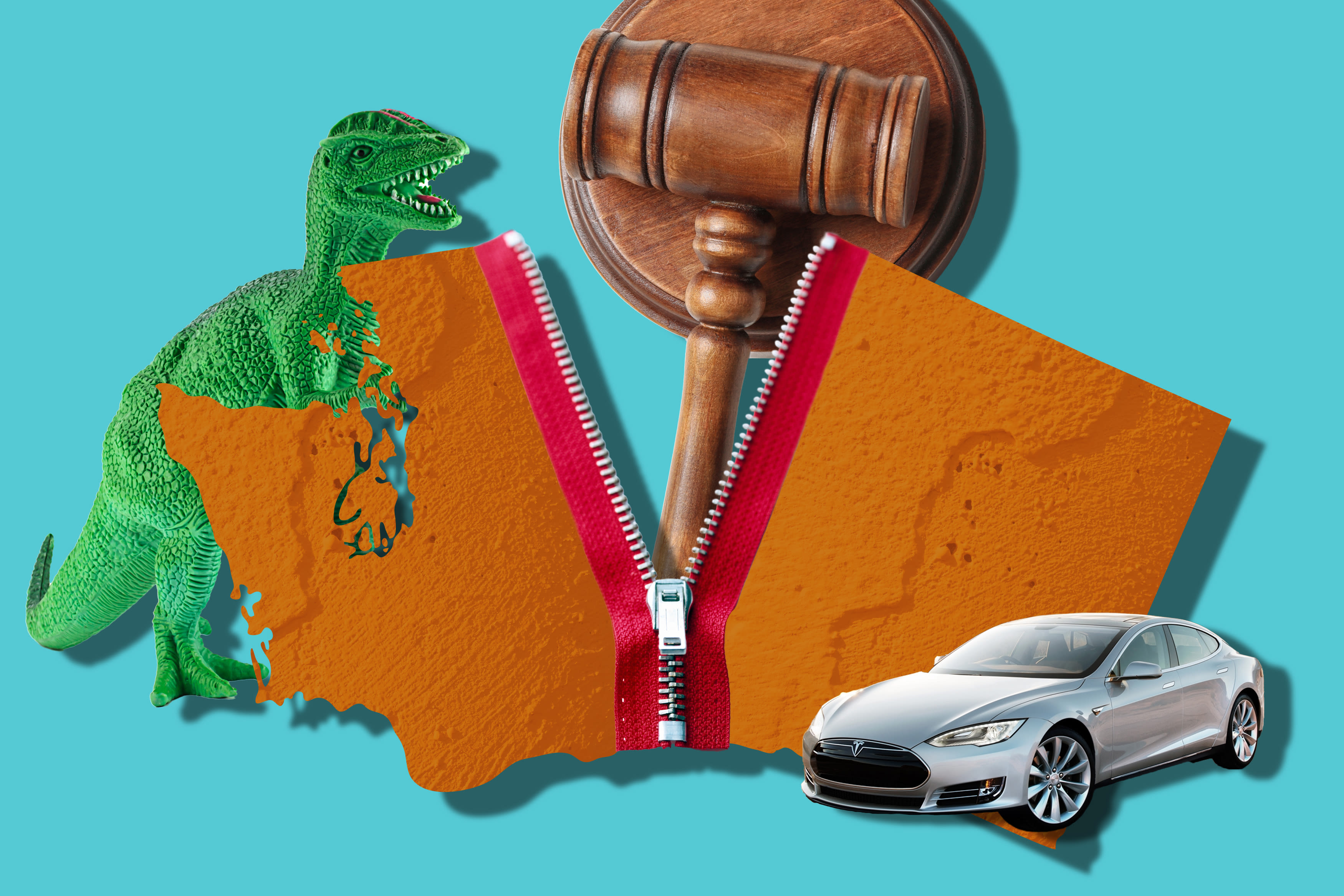Candidate Profile: Michael Harris

Image: Kendall Candioglos
After 34 years in Seattle, TV producer Michael Harris wants to bring “radical centrism” to the city.
What exactly does that mean?
“We’ve left a lot of people out,” Harris said. “I am a moderate in this race. I’m a vegetarian at the BBQ.”
Harris, now 52, said Seattle has gone “too far to the left," opposes any new taxes, and said he doesn't believe institutional racism is a problem in Seattle's police force; but he supports Seattle's sanctuary city policy and wants the city's environmental efforts to go much further. For the last 15 years, he has been working as a Seattle-based ABC news producer and settled into the role as a wildlife specialist, and he said his career primed him for the mayoral role.
Harris lives in Ballard as a single father with his two children. He moved to Seattle in 1983 as a political science student at the University of Washington. Originally a Republican, he worked on Ronald Reagan’s 1984 campaign and was a part of three other presidential campaigns. But he said his immigration and environmentalist stands put him at odds with the party. It was at the Republican National Convention, when he was asked a question about Reagan’s foreign policy on Central America, that he said he realized he no longer identified with the GOP.
“It was sort of an epiphany if you will,” Harris said. “I said, ‘Look, I am at odds with my party…I think we’re wrong.’”
But Harris is fiscally conservative and has taken a conservative stand on the income tax, saying it would push the wealthy and tech talent out of Seattle. He said he wants to sustain the city’s boom and “make the most of what we’ve got.” And he said the soda tax ignored the concerns of small businesses and was a “dog whistle to the tax-rich crowd.”
Harris supports Seattle’s sanctuary city policy and said he volunteered with the University Baptist Church helping Central American refugees settle in Seattle. But he's at odds with other social justice activists in the city on police reform and said he didn't believe institutional racism or disproportionate lethal force was a problem in Seattle. Harris said he's covered mass shootings and knows how difficult officers' jobs are; he would hire police chief Kathleen O’Toole back in a heartbeat and said the Seattle Police Department is "the most transparent, the most progressive police force in the United States."
“I spent 10 years in Columbia City before I moved to Ballard,” Harris said. “I lived in the hood. I know what it's like.”
Harris, as executive director of the Pacific Whale Watching Association for five years, also said he's passionate about environmentalism and insists he can make the city use 100 percent renewable energy by 2035; he said he’d start by making police use electric vehicles within three years (though didn’t say how he would plan to pay for it).
Harris opposes the approach Mayor Ed Murray and King County took to safe injection sites in Seattle after his visit to Vancouver, calling the decision “premature," though he said he’s not entirely opposed to the sites. Harris said there needs to be more research done on the sanitary purposes and success rates of rehabilitation before they can be successful in Seattle. On encampment sweeps, he said the way they are currently implemented is “inhumane,” but if done in the right fashion, can have a positive impact on homeless drug users. He said he would want to keep homeless people moving, rather than staying at an encampment site.
“The idea is to keep them moving," Harris said. "Even if it’s a lateral from one block to another block, every week or two…they’re moving." Harris said. He proposes starting a program like the Day of Dignity in Denver, during which homeless people are offered work and training to clean up areas or fill potholes in exchange for a wage.
Like Bob Hasegawa, Harris supports the idea of a municipal bank that would encourage loans for more public housing like workforce apartments.
“There’s got to be something to plug the hole, to encourage, to incentivize the development of these kind of apartments,” Harris said. “There needs to be more.”
Harris’ father, Chris Harris, was the first player from England to be a part of the NBA; and therefore Harris has a particular passion for the NBA, and more specifically, the Sonics. He is adamant about throwing out the decisions Ed Murray has made on the KeyArena renovations and pursuing the SoDo Arena plan. He said Murray jumped the gun on the decision without looking at all the factors, and that the SoDo Arena would be the most beneficial for the city.
Harris describes being “recruited" to the mayoral race but has only raised $460 from three contributors, one outside city limits. With 21 candidates in the race, Harris said his ability to find funding has dwindled; he's put $10,000 into his own campaign, according to the SEEC.
“I’m not going away,” Harris said. “I’ve got the bug. And I’ve heard a lot of people who want me to stay in this discussion.”




